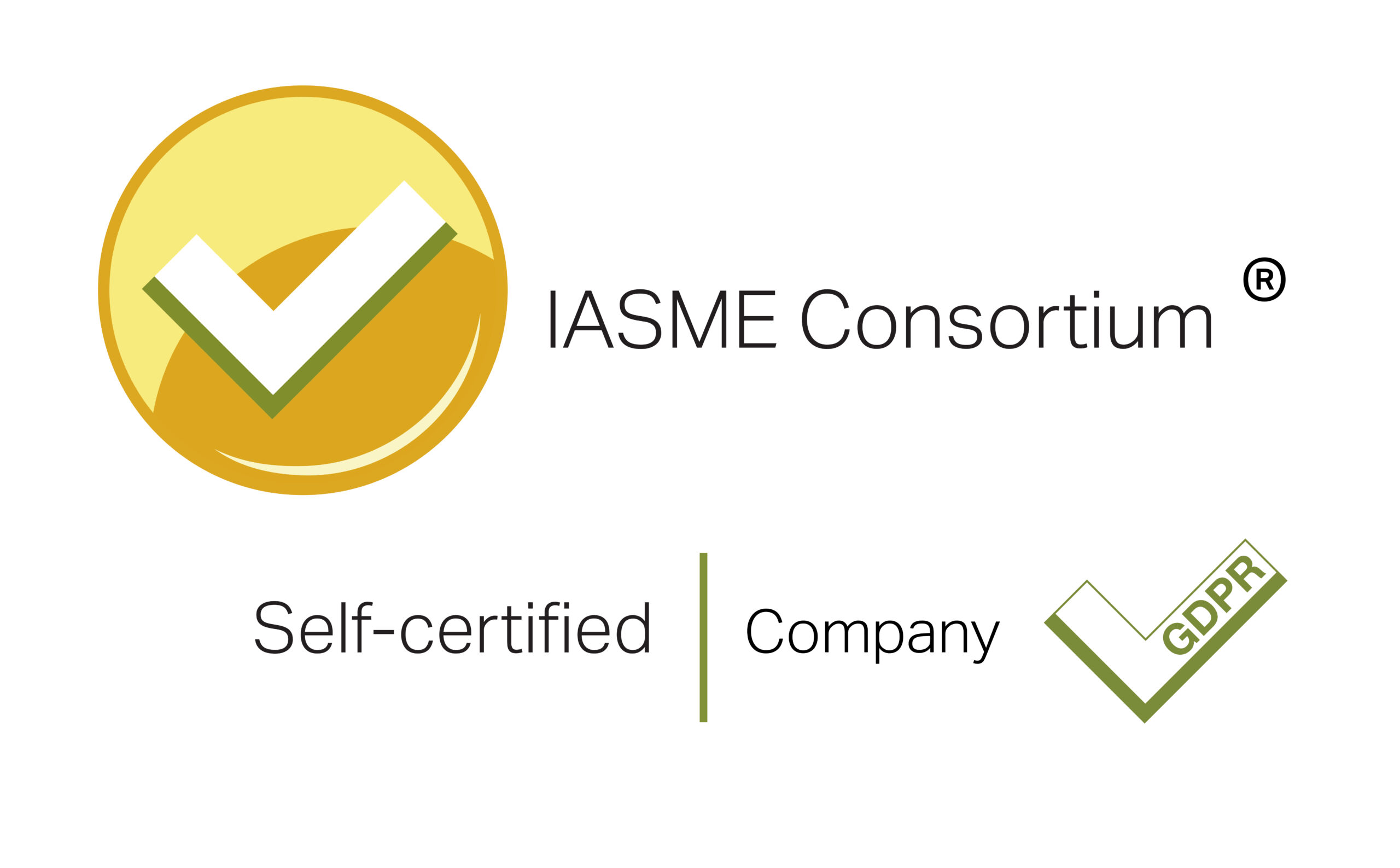You currently have your own ways and means of running your business. To be ISO certified means that the way you do things has been externally audited against the requirements agreed by the International Organization for Standardization (ISO). ISO certifications are recognised internationally and are often seen as the ‘gold standard’.
There are over 21,000 ISO standards but the most popular are ISO9001 (Quality), ISO27001 (Information Security), ISO14001 (Environmental) and ISO45001 (Health & Safety).
The ISO recognises that you don’t run your business in silos so it has designed these four standards (and many others) to work together in what is known as an Integrated Management System.
Each ISO standard offers different benefits. These can include reducing cost, improving productivity, increasing employee engagement and protecting your reputation. Having an ISO standard can also help you win new business and maximise new opportunities. Many tenders now require ISO certification or accreditation, especially within the public sector.
ISO certification requires an external audit by a specialist ISO company. These are called certification bodies. However how do you know that the assessment of one certification body is the same as another certification body? Are you comparing apples with apples? In the UK, the UK Accreditation Service (UKAS) audits the performance of the certification bodies to ensure that that they are performing in the same way as ISO expects – in other words, they audit the auditors! At Risk Evolves, we recommend that companies work with a UKAS certification body – we work closely with NQA and British Assessment Bureau, for example, and our own ISO management systems have been certified by NQA.
If you’re in any doubt about which path to take, please contact us for advice. Whilst there are cost differences between non-UKAS certification bodies and UKAS certification bodies, this could be a short-term saving as a number of companies will not accept non-UKAS certifications and you may need to do the work again. Confused? Don’t be! We’ll sort all of this out for you. Part of our service is to manage the relationship with the certification body so that you don’t have to.
With the UK leaving the EU, greater focus is being placed on the role of UKAS and the certification bodies. If you trade with Europe and will rely on an ISO certification in that market place, you should use a UKAS accredited certification body. Finally, UKAS is building a database of companies who have achieved certification. This will help prevent fake certificates and allow easier ‘look up’ facilities for companies wishing to check the validity and scope of a potential supplier’s certification.
As members of the Associate Partner Programme with certification body NQA and British Assessment Bureau, we’re working closely with them to understand the impact of any other changes and will share information with our clients as soon as we’re aware.
It depends on your current situation, resources and how much supporting information you already have within your organisation. On average, new clients achieve certification within twelve weeks.
ISO cannot be implemented by just one person at an organisation, it needs buy-in from everyone at every level. As part of the process, we’ll help you ensure that your colleagues understand the importance of your new ISO certification. This makes it easier for them to be compliant.
No, certification is always for the business, not for the individual.
We have a tried-and-tested four-stage process which includes a gap analysis, a step-by-step action plan and audits.
Once you are certified, we can provide the support you need to remain compliant every day. If you subscribe to Compliance as a Service, you’ll be able to contact an experienced ISO consultant with any queries. In addition, we can also provide regular internal audits to ensure that your management system is working well.
Find out how we help businesses approach audits with confidence and contact us so we can help you develop an action plan.
Once you have embarked on the ISO certification process with us, we will work with the certification body who can supply you with a free letter of intent. This shows that you are committed to achieving certification and is usually valid for six months. You can use this in tenders and share it with your customers.
Of course! This is exactly what happened to Sam Wood, the MD of Transcription City. Find out how we helped Sam to achieve certification to ISO9001 and ISO27001 in just twelve weeks.
It depends! Prices vary depending on the size and complexity of your organisation, the standard that you wish to certify to and how much you are able to do yourself. Give us a call and we will provide a price. Unlike other consultants, we don’t ask for the money up front. We are always happy to discuss spreading the cost of payments to make certifications more affordable. We can also liase with the external certification body to spread their costs.
One of our experienced trainers will deliver some training as part of your package. However, should you require further training, we have a range of courses available including some free introductory courses.
Please contact us for details.









